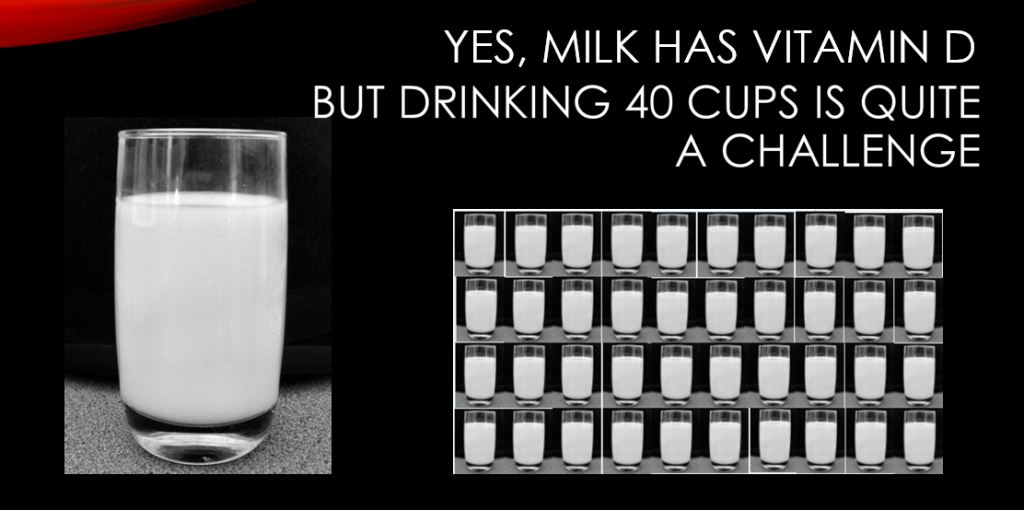Published on January 6, 2018
Do you often hear that you get ‘enough’ vitamin D from milk? It is a common misconception that continues to be propagated.
How much vitamin D is in a glass of milk?
One 8-oz glass of vitamin D fortified milk has approximately 100 IU of vitamin D. This is 1/6 of the current Recommended Daily Allowance (RDA), which is, in turn, an order of magnitude of what your body really needs. Research has shown that it takes about 4,000 IU/day to get 95% of the population to the lower end of what the scientists recommend: 40-60 ng/ml (100-150 nmol/L).
Depending on the analysis, you might need about 40 glasses a day. Check our Vitamin D Calculator for your potential intake.

Source: Mary Pittaway Presentation, 2014
What is the current RDA?
The current RDA of vitamin D is between 400-800 IU vitamin D per day depending on your age. This blog explains the current RDA.
Since the RDA was set in 2010, two independent research entities used the same data to conclude the RDA is not sufficient. One found that the RDA should be 7,000 IU/day (70 glasses of milk) and the other found it to be almost 9,000 IU/day (90 glasses of milk). Read this blog to understand the specifics.
Can you get enough vitamin D from diet alone?
A few of our participants have been able to get their vitamin D levels into recommended ranges, 40-60 ng/ml (100-150nmol/L), through diet alone, but it is uncommon. It requires a dedication to diet, natural sourcing and diligent testing that is too hard for most people. Here is a blog of a participant has done just that.
Researchers from GrassrootsHealth authored a paper in 2013 that concluded: “While certain food sources can contribute significantly to vitamin D status, it is likely that vitamin D supplementation will remain key to improving vitamin D status at a population level.” Read the summary here.
What should you do with this information?
Don’t count on milk, or food, to provide you with ‘enough’ vitamin D. Make sure you test your vitamin D levels twice a year and if you are below the recommended range of 40-60 ng/ml (100-150 nmol/L), add a daily vitamin D supplement and/or sun exposure to help raise your level.

